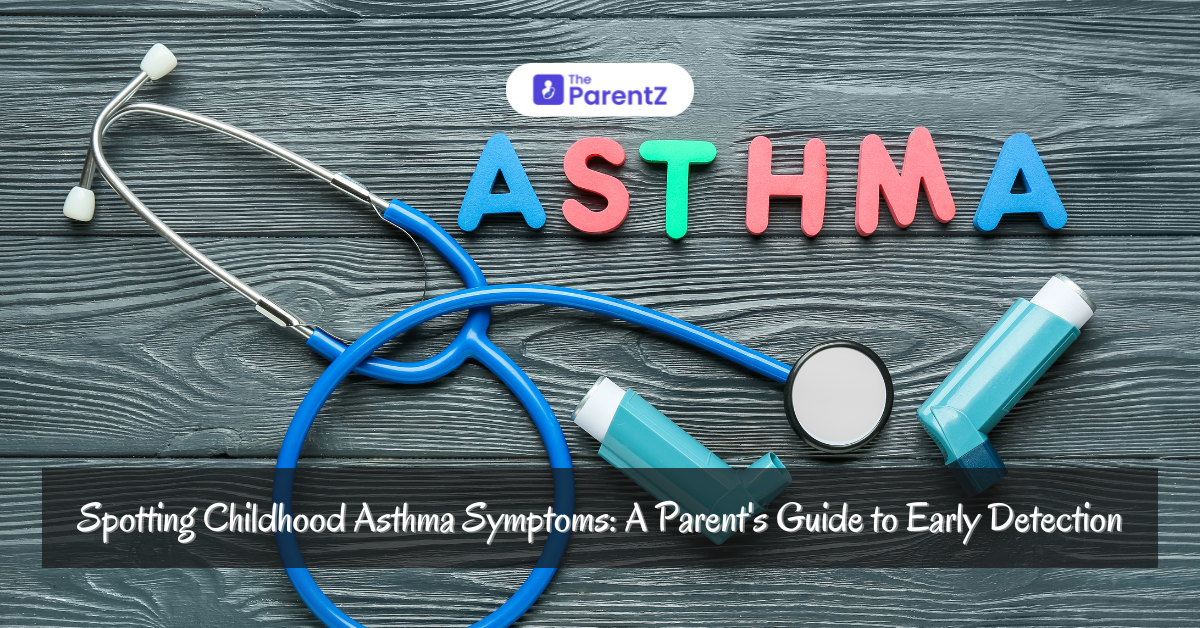Asthma is a chronic lung condition that impacts millions of children worldwide, and its symptoms can often be mistaken for other illnesses. Therefore, it is important for parents and caregivers to understand the signs and symptoms of childhood asthma. This knowledge can lead to timely diagnosis and effective management, allowing children to lead active, healthy lives.
Understanding Childhood Asthma
Asthma is a disease that affects the airways, causing them to swell and narrow, which can lead to breathing problems. It can start at any age but often shows up in children before they begin school. We don't know for sure what causes asthma, but it seems to be linked to both genetics and the environment. Children with a family history of asthma or allergies are at a greater risk.
Common Childhood Asthma Symptoms
Recognizing childhood asthma symptoms early can make a significant difference in managing the condition. Here are some key signs to watch for:
- Wheezing: A whistling or squeaky sound when your kid breathes out is one of the hallmark signs of asthma. Wheezing may be more noticeable during physical activity or at night.
- Coughing: Frequent coughing, especially at night or during play, can indicate asthma. This cough may worsen with respiratory infections like colds or flu.
- Shortness of Breath: If your kid experiences difficulty breathing or feels out of breath during normal activities, this could be a sign of asthma.
- Chest Tightness: Complaints of chest tightness or discomfort, which younger children might describe as a "sore tummy," can also signal asthma.
- Fatigue: Excessive tiredness during play or after physical activity may suggest that your child is struggling with breathing and not getting enough oxygen.
- Difficulty Sleeping: Asthma symptoms can worsen at night, leading to disrupted sleep due to coughing or shortness of breath.
These symptoms can vary from child to child and may change over time. Some children may experience mild symptoms occasionally, while others may have more severe and frequent episodes.
When to Seek Medical Advice
If you suspect that your child may have asthma, it's essential to consult a healthcare provider as soon as possible. Early diagnosis and treatment are crucial in handling asthma effectively. You should seek medical attention if:
- Your child has persistent coughing, especially at night.
- You notice wheezing sounds when your child breathes.
- Your child experiences shortness of breath or rapid breathing.
- They complain about chest tightness frequently.
- There are repeated attacks of suspected bronchitis or pneumonia.
Keeping a record of your child's symptoms can be helpful for healthcare providers in diagnosing asthma. Document when symptoms occur, their severity, and any potential triggers.
Identifying Asthma Triggers
Understanding what triggers your child's asthma symptoms is vital for effective management. Common triggers include:
- Allergens: Pollen, dust mites, mold, pet dander, and cockroaches can provoke asthma symptoms in sensitive children.
- Respiratory Infections: Colds and flu are frequent precursors to asthma flare-ups.
- Environmental Irritants: Tobacco smoke, air pollution, strong odors, and chemical fumes can irritate the airways.
- Physical Activity: Exercise-induced bronchoconstriction (EIB) can occur during vigorous activities.
- Weather Changes: Cold air or sudden changes in weather can exacerbate symptoms.
Identifying these triggers allows you to take preventive measures and reduce exposure.
Conclusion
Recognizing early signs of childhood asthma is vital for ensuring that children receive the care they need to thrive. By being aware of the common childhood asthma symptoms and understanding how to manage triggers effectively, you can help your children lead fulfilling lives despite this chronic condition. Early intervention not only alleviates immediate discomfort but also helps prevent long-term complications associated with poorly managed asthma. If you suspect your child has asthma, don't hesitate to seek medical advice—your proactive approach could make all the difference in their health journey.








Be the first one to comment on this story.